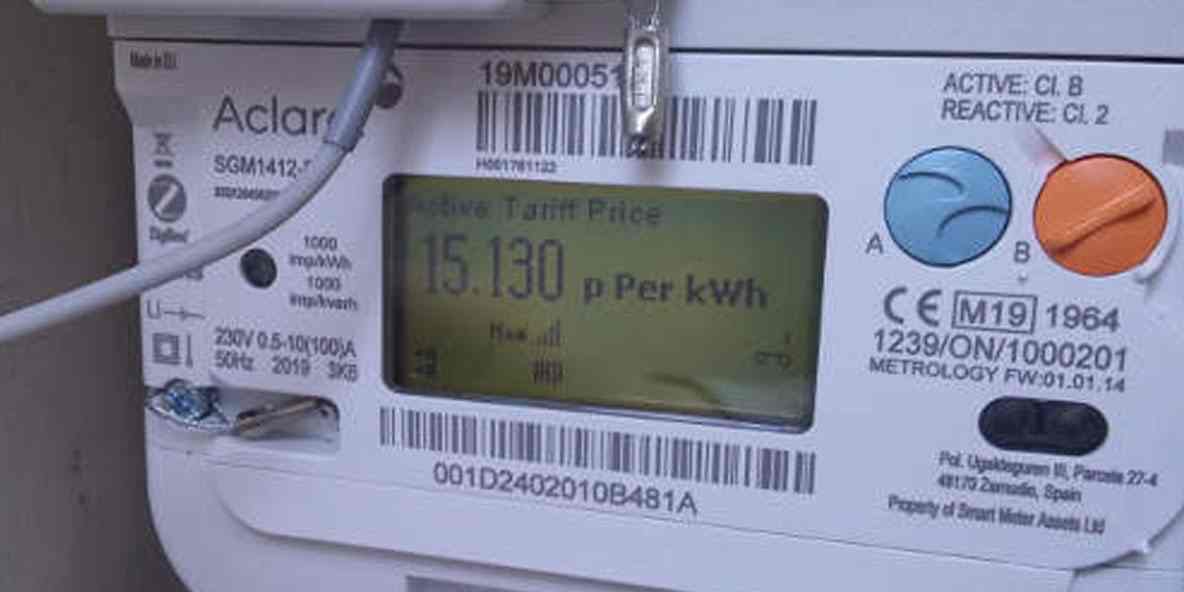
Energy suppliers have been banned from forcibly installing prepayment meters for people over 75 with no support in their house and homes with children aged under 2, thanks to new protections put in place by Ofgem.
The energy regulator has today (13 September) confirmed that the Code of Practice for the involuntary installation of prepayment meters (PPMs) will be made mandatory. It has also extended protections even further to prevent involuntary installations for the most vulnerable households.
The voluntary PPM Code of Practice, which all energy companies signed up to in April, was put in place after evidence emerged of bad behaviour by suppliers severely affecting struggling customers.
Following a public consultation over the summer, the code will now become part of suppliers’ licence conditions, which if breached can result in enforcement action and substantial fines.
Initially, the no-install rule applied to customers aged 85 and over (with no other support in their home) or households with residents with severe health issues including terminal illnesses or those with a medical dependency on a warm home.
By dropping the upper age limit to include consumers aged 75 and over without support in the household and adding homes with very young children, Ofgem is ensuring that more people will be protected this winter.
Currently, no suppliers are carrying out involuntary installations and will face severe penalties if they do unless they meet strict criteria set by Ofgem. When suppliers do so, the new rules – which come into effect on 8 November after a mandatory 56-day notice period – will ensure they are acting in a fair and responsible way with involuntary installations used only as a last resort.
Neil Kenward, director for Strategy at Ofgem said:
“Protecting the most vulnerable consumers is at the heart of what we do, and this decision not only cements the protections Ofgem put in place for people deemed most at risk, it goes further to protect the most vulnerable households.
“Prepayment meters are an important payment method that help millions of households to manage their energy bills. But they are not suitable for everyone.
“Today’s enhanced rules are there to provide protection from bad practice while ensuring that when needed, and as a matter of last resort, suppliers are using involuntary installations in a fair and responsible way.
“Ofgem will be monitoring suppliers’ behaviour closely to ensure they are complying with the spirit and letter of these rules. If that is not the case we will not hesitate to take action.”
Ofgem intends to periodically review the rules to check that they are succeeding in their objective of protecting the most vulnerable without unsustainably increasing bad debt, which would add to customer bills.
To inform Ofgem’s approach to PPMs, it commissioned independent research into the experiences of PPM consumers.
The research participants reported a lack of communication from suppliers about what to expect during installation or how to use a PPM. A number also said they felt intimidated when installation was carried out under warrant.
However, many respondents said it gave them control over their budget and removed the stress of receiving unexpectedly high bills based on supplier estimates. This view was expressed by people who had their PPM installed under warrant as well as those who chose to have a PPM installed.
Following today’s announcement, the conditions of the code will be legally enforceable and apply to energy firms and any contractors. It states that before PPM can be involuntarily installed suppliers must:
Make at least 10 attempts to contact a customer before a prepayment meter is installed
Carry out a site welfare visit before a prepayment meter is installed
Refrain from all involuntary installations for the highest risk customers including:
Households which require a continuous supply for health reasons, including dependence on powered medical equipment
Households where all occupants are aged 75 years and over (if there is no other support in the house)
Households with children aged under 2 years old
Households with residents with severe health issues including terminal illnesses or those with a medical dependency on a warm home (for example due to illness such as emphysema, chronic bronchitis, sickle cell disease)
Where there is no one within the household that has the ability to top up the meter due to physical or mental incapacity
Audio or body cameras must be worn by the lead supplier representative present on all warrant installations or site welfare visits to check for vulnerabilities ahead of an involuntary installation or remote mode switch. All audio and footage will be available for audit
Give a £30 credit per meter (or equivalent non-disconnection period) on all warrant installations and remote switches as a short-term credit/measure to remove the risk of customers going off supply at the point of PPM meter installation.
Re-assess the case once a customer has repaid debts owed. Suppliers must contact the customer to offer assessment of whether a prepayment meter remains the most suitable and preferred payment method of choice for consumers; if any prepayment meter customer is clear of debt and wishes to move off their prepayment meter (understanding any changes in the tariff they will pay), the supplier must agree where the customer passes any required credit checks.
During the 56-day notice period, the Code of Practice will remain in place and suppliers will be unable to restart involuntary installations until they meet the conditions set out by Ofgem. These include:
Suppliers must conduct an internal audit to identify wrongfully installed involuntary PPMs and offer compensation and a return to a non-prepayment payment method to any affected customers.
The suppliers’ Boards attesting that the supplier is ready to restart involuntary PPMs in compliance with the Code, and that redress will be offered to wrongfully installed PPMs.
If the PPM Market Compliance Review finds major concerns, the supplier in question will need to take corrective action before Ofgem would think it reasonable to restart.
Suppliers must provide regular monitoring data to Ofgem, so that concerning trends on involuntary PPM practices can be identified early.







Recommended Comments
There are no comments to display.
Create an account or sign in to comment
You need to be a member in order to leave a comment
Create an account
Sign up for a new account in our community. It's easy!
Register a new accountSign in
Already have an account? Sign in here.
Sign In Now